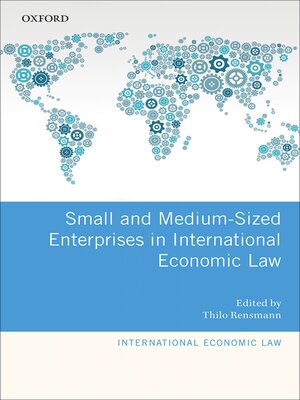Small and Medium-Sized Enterprises in International Economic Law
ebook ∣ International Economic Law Series
By Thilo Rensmann

Sign up to save your library
With an OverDrive account, you can save your favorite libraries for at-a-glance information about availability. Find out more about OverDrive accounts.
Find this title in Libby, the library reading app by OverDrive.



Search for a digital library with this title
Title found at these libraries:
| Loading... |
International economic law, with its traditional focus on large multinational enterprises, is only slowly waking up to the new reality of small and medium-sized enterprises (SMEs), entering the global marketplace. In the wake of the digital revolution, smaller companies now play an important role in the global economic landscape. In 2015 the UN expressly called for SMEs to have greater access to international trade and investment, and it is increasingly recognized that the integration of SMEs provides one of the keys to creating a more sustainable and inclusive global economy. As SMEs increasingly permeate transnational supply chains, so interactions between these companies and international economic law and policy proliferate. Small and Medium-sized Enterprises in International Economic Law offers the first comprehensive analysis of the interaction between SMEs and international economic law. This book presents a broad international perspective, gathering together contributions by leading experts from academia, legal practice, and international organizations. It opens up a field of enquiry into this so far unexplored dynamic and provide a touchstone for future debate. The analysis covers a broad spectrum of international trade and investment law focusing on issues of particular interest to SMEs, such as trade in services, government procurement, and trade facilitation. Diverse perspectives illuminate regional developments (in particular within the EU) and the implications of mega-regional free trade agreements. The essays also examine questions of legitimacy of global economic governance; in particular, concerns surrounding the threat posed to the interests of domestic SMEs by the growing liberalization of international trade and investment. These essays constitute essential reading for practitioners and academics seeking to navigate a previously neglected trend in international economic law.






